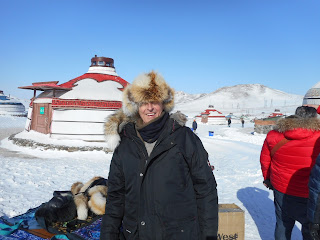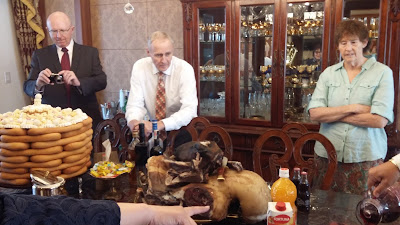Well, this week we were liberated: It has warmed up enough to take
off the thermals, stop using the scarfs, gloves, and heavy coats. Wow,
it was so nice to feel free. We still wear lighter coats but 40-45
degrees is marvelous.
The immigration folks are checking
everybody very carefully. We have to have our alien card, a copy of our
passport and immigration papers with us at all times. And guess what,
they showed up at our door. They were really nice but they checked
everything and asked a lot of questions.
We are training the
new American missionaries to teach English. It is amazing to see so
many Mongolians come to the English classes that are held in the church
buildings. We make them fun, they participate a lot. We try to have
them talking 50 to 70 percent of the class time. We help them
understand the words and pronounce them correctly, then they repeat
after us 3 or 4 times, and then again 3-4 times with a partner. When we
are out on the streets or on a bus the elementary kids love to try and
talk to us in English. They are so proud of themselves when they say
"hi," or "how are you," or |"what is your name." They get our names a
lot better than we get their names. Here are some of the most common
names: Batbold, Baatar, Osomajamaa, Aydibold, Nomuna, Undraa, Pujae,
Khungarsol. All these names have been shortened so that we can say
them. Their full name is something like Baatarazakhuraa. They only
have one name, no last names.
We are doing good and staying
busy. We are very grateful to be here in Mongolia at this time. We feel
it a privilege and a blessing. We love this Gospel and it's wonderful to
see it spreading throughout the world.














